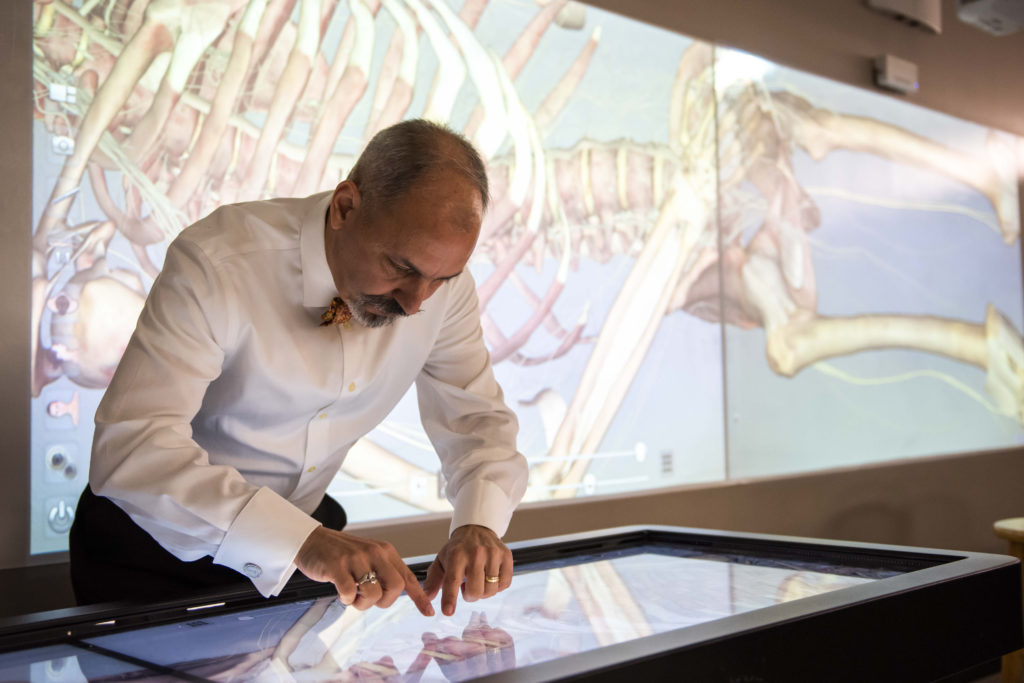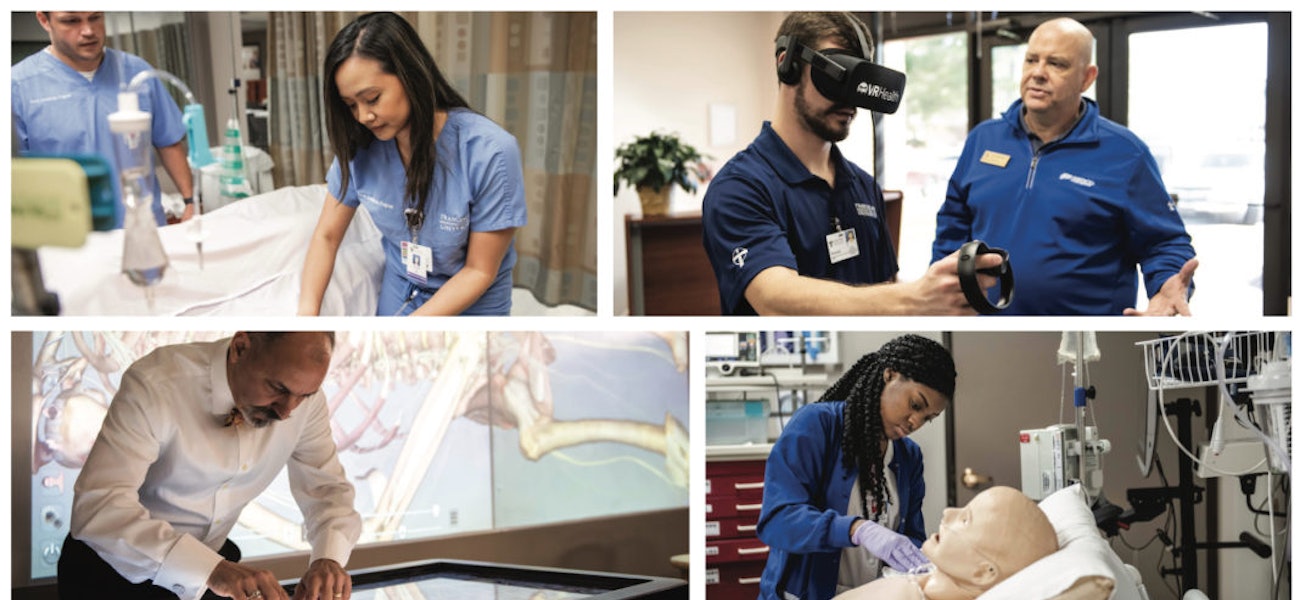Sponsored by Franciscan Missionaries of Our Lady University (FranU)
While there are plenty of universities that offer healthcare degrees, some are just better than others. Caring for people involves a lot more than what you can learn in a book, and Baton Rouge’s Franciscan Missionaries of Our Lady University (FranU) prepares graduates for success in whatever field they choose. FranU is a small, Catholic, not-for-profit institution committed to providing an innovative, student-centered learning environment where students can reach their full potential. FranU’s staff and faculty pride themselves on meeting students where they are in life and working together to create a path that is easily navigated.
We spoke to Brian A. Rash, PhD, FranU’s Dean of the School of Arts & Sciences, about the quality educational experiences offered in all areas of biology and chemistry (BAI), especially those integral to the health of the population. With a curriculum focused on the human body, most upper-level biology courses are very similar to those seen in graduate medical programs. For example, a senior at FranU might enroll in Cardiovascular Physiology or Neurophysiology or Oncology, whereas in other biology programs, Ecology or Botany might be more likely. As with BAI, students in the Human Medicine track take the Practical Experiences course. This course allows them to participate in simulation in the Simulated Environment Teaching Hospital (SETH) lab, serve as a standardized patient, and become certified in AHA Basic Life Support (BLS).

“We have no admission requirements other than those of the University,” Dean Rash says. “But students who are strong in the sciences and math will be much better prepared for the rigorous curriculum. Several courses are designated as CUREs (Course-based Undergraduate Research Experiences), in which students do small projects within a course. The work is designed to help students apply their knowledge and retain it better. That’s why students also complete a semester-long research project with a selected mentor.”
The curriculum includes medical observation shadowing hours that all students take traditionally after their second year. This incorporation of shadowing hours at Our Lady of the Lake and other sites is unique compared to biology programs at other universities. Third- and fourth-year students also have opportunities to apply their knowledge and skills through experiential learning. Some examples include students working in biomedical labs like Pennington Biomedical Center or working extensively as standardized patients at FranU’s SETH lab.
“Students have a variety of opportunities to participate in research or teaching lab activities with our faculty,” Dean Rash says. “Either within a course or through our SIRE (Supervised Independent Research Experiences) and LABS (Laboratory Assistant Biology Stipend) programs where they receive a stipend for their work.”
FranU has a strategic curriculum that includes seminar courses that allow students to engage in activities that are nuanced towards their specific vocational goals. Numerous guest speakers representing various healthcare fields talk about their own vocational discernment and offer expertise on how to best prepare for the admissions process to graduate school. Elective courses in the program can also be tailored to a student’s specific career path. A pre-PT student can elect to take kinesiology and anatomy courses that may best prepare them for PT school, while a pre-medical student interested in cardiology may focus on courses on cardiovascular and respiratory systems.
Seminar courses embedded in the degree also assist students in preparing for graduate school admissions with extensive workshops focusing on interviewing skills and writing personal statements. A premedical advisory committee for the program also provides opportunities for students to practice interviewing and provides suggestions for improvement in interviewing skills.

The Bachelor of Science in Biology degree is segmented into 3 academic tracks:
—Biochemical Analysis & Instrumentation (BAI) Track prepares students for lab intensive careers that integrate biological and chemical concepts, instrumentation and analysis, and to prepare students for graduate degrees (MS, PhD) in multiple biological, chemical or biomedical disciplines. Potential career paths could include chemical and biochemical industries, forensic science laboratories, biotechnology, pharmaceuticals, or quality control laboratories.
—Pre-professional Human Medicine (HMED) Track prepares students for admission to and postgraduate education in, for example, medical (MD, DO), dental (DDS, DMD), veterinary (DVM), physical therapy (DPT) and physician’s assistant (MMS) programs worldwide. In addition to academic readiness, the Human Medicine track provides opportunities for service and leadership in the student organization Beta Sigma Mu and provides interview preparation and letters of recommendation through the Premedical Advisory Committee.
—3+2 Accelerated is an expanded program designed to allow highly qualified students (26 ACT, 27 Math) the opportunity for acceptance into Franciscan Missionaries of Our Lady University’s 26-month PA program (professional phase) after successfully mastering the initial 3.5 years of biology-human medicine curriculum (pre-professional phase). This program shortens the total amount of time to receive an MMS: Physician Assistant degree by 6 months to 1 year. Ultimately, these students will graduate with both a Bachelor of Science Degree in Biology-Human Medicine Track and a Master of Medical Science degree in Physician Assistant studies.
Visit franu.edu to learn more and begin the next part of your journey with teachers and mentors who elevate the academic experience and help students succeed in answering the call.






